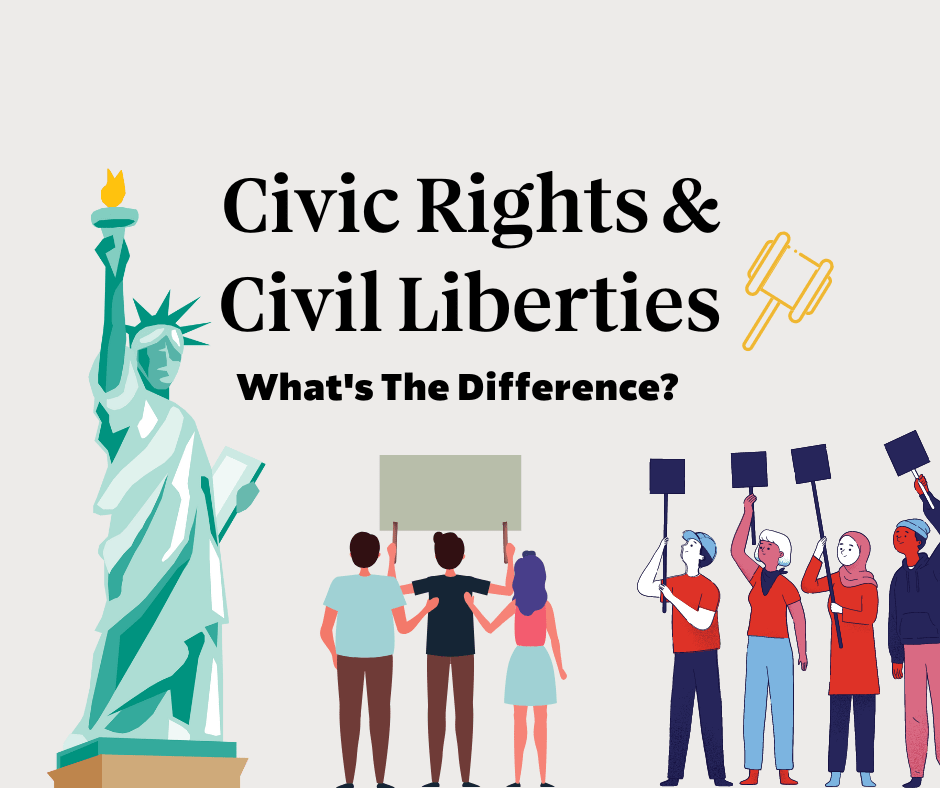
Civic Education: Civil Rights vs. Civil Liberties
Do you know the difference?
What are civil liberties?
- Civil liberties refer to individual rights and freedoms that are guaranteed to every citizen and are protected from government interference.
- Civil liberties are protected in the Bill of Rights, which lists the first ten amendments to the U.S. Constitution. Some civil liberties include freedom of speech, the right to bear arms, the right to a fair trial, and protection against unreasonable searches by the government.
History of civil liberties
- The Bill of Rights became law in 1791. It was drafted by James Madison, one of the Founding Fathers.
- Civil liberties have expanded over time. Before the Twenty-sixth Amendment was passed in 1971, the Constitution did not originally define voting eligibility, and each state determined who was eligible.
- Civil liberties have been violated in the past. The Sedition Act of 1918 limited freedom of speech, imposing penalties for dissenting statements about the military or government.
What are civil rights?
- Civil rights promote the fair distribution of civil liberties to each citizen, regardless of race, religion, or other personal characteristics. These rights are given based on citizenship, and if violated, the offender may be prosecuted.
- Civil rights may differ from state to state. Although the Constitution prohibits denying voting rights based on age, race, or gender, states can limit the voting rights of individuals with criminal convictions.
History of civil rights
- Civil rights are enforced through the U.S. Constitution and federal laws, such as the Civil Rights Act of 1964 and the Voting Rights Act of 1965.
- The Civil Rights Act of 1964 was signed into law by President Lyndon Johnson. This significant civil rights legislation banned employment discrimination based on race, color, religion, sex, and national origin. It also ended racial segregation in public areas.
Main difference between civil liberties and civil rights
- Civil rights protect people from unfair treatment, while civil liberties grant personal freedoms.
- Civil rights are based on federal law and not included in the Bill of Rights, while civil liberties are included in the Bill of Rights and guaranteed by the Constitution.
- A useful guideline is that civil rights grant citizens "freedom from" whereas civil liberties give citizens "freedom to."
What are some civil liberties and rights issues today?